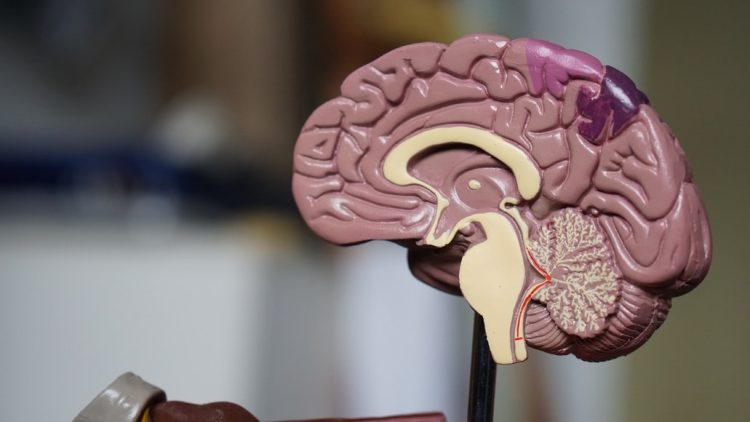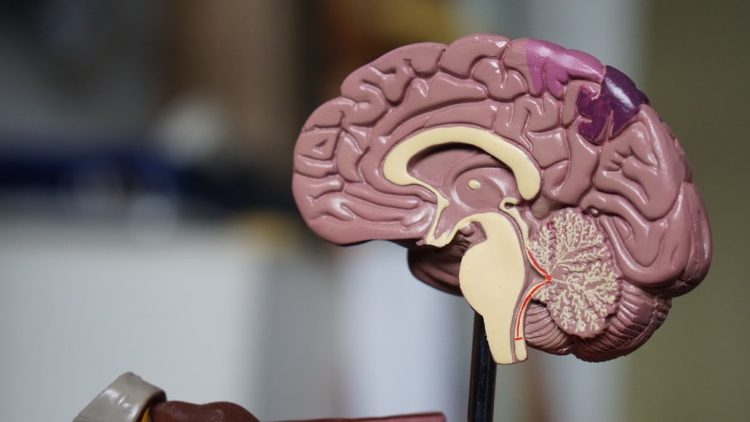A Rhode Island has been suffering from an extremely rare fungus-caused condition that literally causes black mold to grow in his brain.
Tyson Bottenus, a 35-year-old man from Rhode Island is only one of only 120 documented cases of infections with Cladophialophora bantiana, an exotic fungus known as “black mold”, since 1911. In his case, the fungus made its home in the brain, causing all sorts of issues that Bottenus has been dealing with ever since symptoms began, about four years ago. Tyson is lucky to be alive, as black mold kills over 70% of its hosts, and he is doing everything possible to fight and hopefully get it out of his brain, but it’s a tough battle, one that even modern medicine is struggling with.
Tyson’s ordeal began 4 years ago, when he and his fiancée, Liza, decided to celebrate their engagement by going cycling together in Costa Rica. Everything was well and good until the third day of their vacation when Tyson accidentally fell off his bike and scraped his left elbow. It wasn’t the most serious injury, so he just rinsed and bandaged the wound as best as he could, and had it looked at by a nurse early the next morning.

Photo: Robina Weermeijer/Unsplash
The nurse told Bottenus that cyclists came in with similar wounds all the time and that it was nothing to worry about. Indeed, his elbow healed quickly, and the two were able to continue their vacation and return to the US. But after about three weeks, Tyson started experiencing bizarre symptoms – frequent severe headaches, facial paralysis and even laughing difficulties.
Tyson Bottenus contacted his doctor about his problems, and he suggested an MRI, which showed a weird circle in the middle of his brain. It was the beginning of an arduous journey to identify the mysterious circle. Tyson asked if it was cancer, and the doctor told him that he didn’t know. Hearing about his vacation in Costa Rica, the doctor tested him for cysticercosis, a brain disease contracted by eating raw pork. Then he was tested for Lyme disease, tuberculosis, AIDS and multiple brain cancers, but everything came back negative.
After two failed brain biopsies, on the attempt, doctors at Massachusetts General Hospital figured out the cause of Tyson’s problems. While testing for another type of brain cancer, they found a black fungus in his brain, which lab tests confirmed was Cladophialophora bantiana, or black mold.
This extremely rare fungus was first documented in 1911, and since then only 120 cases have been confirmed, half of them in India. Doctors don’t know exactly how Tyson got infected, but they suspect it entered his body through his elbow wound, in Costa Rica.
The 35-year old was put on a treatment of oral anti-fungal medicine and steroids to fight the swelling and fluid that the mold was causing in the brain. Unfortunately, it didn’t work as well as he and the doctors had hoped. Tests showed that the anti-fungal medicine had failed to reach the brain because of the human body’s protective barrier, which was kind of bad, but also good, because it meant that his immune system could at least keep the fungus from killing him on its own.
In March of 2020, Tyson stopped taking steroids out of fear that it would weaken his immune system and expose him to Covid-19 infection, but he didn’t tell his doctors. That month he experienced a stroke and had to be rushed to the hospital. His vision was severely affected, his field of vision was reduced, his writing was crooked, and his speech became slurred and hoarse. His intracranial pressure was 15 times normal, and some doctors believe that he was ever to recover, he would be permanently blind.
Luckily, surgery restored Tyson’s vision, but he still can’t drive a car or sail a boat, like he used to. He continues to live with the mold in his brain, because its location makes it impossible to surgically remove, and all the experimental drugs have so far failed. Still, he hasn’t given up hope and is currently on a new type of anti-fungal medicine.
My voice still is weird and my short-term memory isn’t good. I can’t walk down the street without getting lost, but I can write a 20-page paper,” Tyson Bottenus said. “Before all of this happened, I was very certain of a good deal — but this chapter has taught me to really embrace the uncertainty of life. No one expects to find a fungus growing in their brain, but when you do, it’s important to take stock of your life and figure out who can help you solve the problem.”













